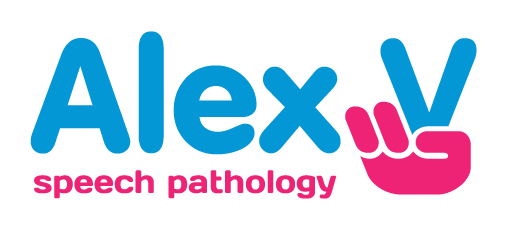Speech Therapy for Autism, due to the nature of the disorder, can be a very different process to treating children without Autism. This is because children with Autism face a different set of speech and language challenges. However, no two children with Autism are the same and therefore treatment plans should be created accordingly.
At Alex V. Speech Pathology, we specialise in speech therapy for Autism, adapting our treatment plans to suit the diverse needs of our clients.
Common Speech Problems in Children with Autism
Children with Autism are faced with a unique set of speech and language impediments that require treatments. Due to the following challenges, a child with Autism must seek treatment so that they not only learn how to speak, but how to have meaningful interactions with others in the world around them.
A child with Autism may:
- Make grunting, crying or shrieking sounds
- Not talk at all
- Use incomprehensible words
- Use robotic-like speech
- Hum or speak in a musical tone
- Repeat what others say
- Babble
- Speak with no expression
Communication problems might include:
- Trouble maintaining eye contact and using gestures in conversation
- Trouble understanding words without context
- Lack of creativity in their language choices
- Reliance on repeating others to speak
- Memorising words without actually knowing what’s been said

Focus on Peer Interactions
Many children with Autism really struggle to interact with their peers; therefore, how to interact with friends and classmates is a skill that must be taught by a Speech Pathologist. While most children with Autism will need treatment for this, the degree to which they struggle and what they struggle with will always differ.
At Alex V. Speech Pathology, we always tailor our treatment plans depending on the child’s age, milestones, interests and hobbies in order to achieve the most affective results. In young children, this might mean teaching them how to play fairly with others and responding to their own name. In older children, this might mean targeting conversational skills and learning how to see things from another perspective.
Spontaneous Communication
Another important skill to focus on teaching children with Autism is spontaneous communication.
This essentially means that the child should be able to communicate basic wants and needs without being prompted by peers and adults. For example; others should not have to say “what do you want?” or “please use your words.” This is an especially important part of speech therapy and is often treated through augmentative-alternative communication, a service that is offered at Alex V. Speech Pathology.
Through augmentative-alternative communication treatment, the child is encouraged to communicate using alternative methods such as symbols, sign language or technology. This is in addition to encouraging the use of existing speech and language skills that the child has.
Social Skills
More often than not, children with Autism have issues with understanding socially acceptable behaviour and knowing how to interact in social situations. Teaching social skills can include offering suggestions to what the child should do and say in certain situations as well as how to actively listen and participate in conversations.
For young children, this will include practices like how to listen to their teacher, how to follow directions and when it’s appropriate to answer a question. For children that are a little older, the focus is angled towards group conversations and developing friendships.
The Alex V. Speech Pathology Ipswich clinic holds group therapy sessions for children with Autism where they get the chance to practice their social interaction skills in a comfortable environment with other children their age.
Alex V. Speech Pathology are children’s speech therapy specialists and pride ourselves on our customised treatment plans and making our environment comfortable for children to be in. To book a consultation at either our Brisbane or Ipswich clinic, contact Alex V. Speech Pathology on (07) 3217 7037.

